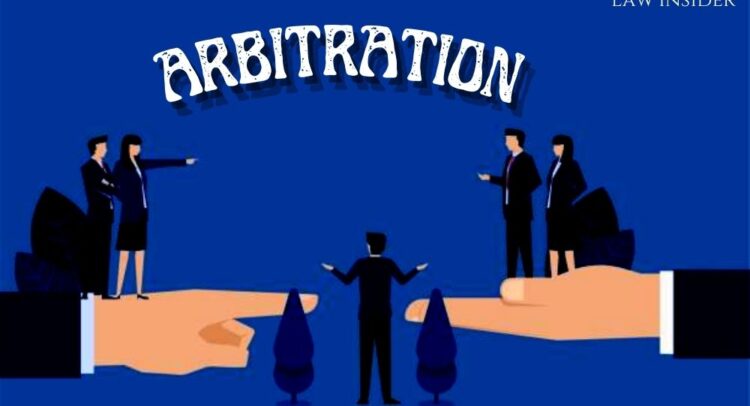The Delhi High Court has passed a judgement on 10-05-2022 in the case of Millennium school vs Pawan Dawar O.M.P. (COMM) 590/2020. Justice Vibhu Bakhru disposed of the petition.
FACTS OF THE CASE
Mr Pawan Dawar (hereinafter ‘the respondent’) is engaged in the business of providing transport services and carries on his business under the name and style of his proprietorship concern M/s Genesis Enterprises (hereinafter ‘GE’).
On 01.04.2012, the parties entered into an Agreement, whereby the respondent agreed to provide transport services to the petitioner. The petitioner owned twenty-two school buses, which the respondent agreed to operate and maintain. The respondent was required to provide conductors, drivers, supervisors, cleaners, full time mechanics and other personnel. In addition, the respondent also agreed to provide additional buses for the purposes of picking up and dropping off the students and the employees of the petitioner.
The Agreement was for a term of eight years, that is, from 01.04.2012 till 31.03.2020 with the first five years as a lock in period. Further, the respondent agreed to strictly abide by the obligations stipulated in the Agreement such as, adhering to the timing for transportation of students; regular maintenance of the buses, maintaining motorable conditions of the buses; complying with the safety guidelines issued by the Supreme Court of India; limiting the number of students transported in each bus to the permissible limit; and, in the event of breakdown of buses, providing alternate vehicles etc.
Thereafter, by a communication dated 07.06.2015, the respondent requested the Principal of the petitioner school to release the outstanding payments in terms of the Agreement. He further stated that even though, the petitioner was collecting the transportation fee from the students well in advance, however, the petitioner was making payments to him in petty instalments after a delay of a substantial period.
The Principal of the petitioner school responded by an e-mail dated 05.08.2015 alleging deficiencies in the services provided by the respondent and further, informed him that the petitioner would be compelled to take strict action if the said deficiencies were not rectified within a period of seven-ten days. Thereafter, by a communication dated 03.09.2015, the petitioner terminated the Agreement.
Aggrieved by the termination of the Agreement, the respondent invoked the Agreement to refer the disputes to arbitration, in terms of Clause 36 of the Agreement. This Court, by an order dated 04.04.2018, passed in O.M.P. (T) (COMM) 55 of 2017 captioned Pawan Dawar v. Millennium School directed the Delhi International Arbitration Centre (DIAC) to appoint an arbitrator to adjudicate the disputes between the parties. Thereafter, the Arbitral Tribunal entered upon reference on 07.06.2018. Before the Arbitral Tribunal, the respondent filed its Statement of Claims. The petitioner filed its Statement of Defence before the Arbitral Tribunal and also raised counter-claims.
Aggrieved by the impugned award, the petitioner has filed a petition. The petitioners petition under Section 34 of the Arbitration and Conciliation Act, 1996 (hereinafter the ‘A&C Act’) impugning an arbitral award (hereinafter the ‘impugned award’) dated 28.02.2020 delivered by an Arbitral Tribunal comprising of a Sole Arbitrator (hereinafter the ‘Arbitral Tribunal’).
Mr Sinha had contended that the Arbitral Tribunal had erred in rejecting the evidence on the ground that requirements under Section 65-B of the Evidence Act were not satisfied. The Arbitral Tribunal had rejected several e-mails on the ground that the requirements under Section 65-B of the Evidence Act were not complied with. The Principal of the petitioner school had issued the said certificate, in support of the said e-mails sent from the petitioner.
It is material to note that there was no objection to the certificate under Section 65-B of the Evidence Act at the time when the same was produced. It was also duly exhibited and marked as Ex. RW1/64. Notwithstanding the same, the Arbitral Tribunal held that the said certificate was inadmissible as it was defective. And, an objection to admissibility of evidence could be taken at any stage.
JUDGMENT
Court took reference from various case laws (i) R.V.E. Venkatachala Gounder v. Arulmigu Viswesaraswami & V.P. Temple And Anr (2003) with regard to a certificate of Section 65-B of the Evidence Act is not available if it is not taken at the material time. In this case court had also explained the distinction regarding evidence that is inherently not admissible and a defect in the manner of proving the same. The requirement of Section 65-B of the Evidence Act relates to the mode and manner of leading evidence and if no objection as to the same is taken at the material time, it would not be open for a party to raise it at a later stage.
The other case laws are as follows from which the Delhi high Court took reference:
- Sonu v. State of Haryana: (2017)
- Om Prakash v Central Bureau of Investigation 2017
The petition is, accordingly, disposed of in the aforesaid terms.
“PRIME LEGAL is a full service law firm that has won a national award and has more than 20 years of experience in an array of sectors and practice areas. Prime legal fall into a category of best law firm, best lawyer, best family lawyer, best divorce lawyer, best divorce law firm, best criminal lawyer, best criminal law firm, best consumer lawyer, best civil lawyer.”
ARTICLE WRITTEN BY ABHINAV CHATURVEDI


